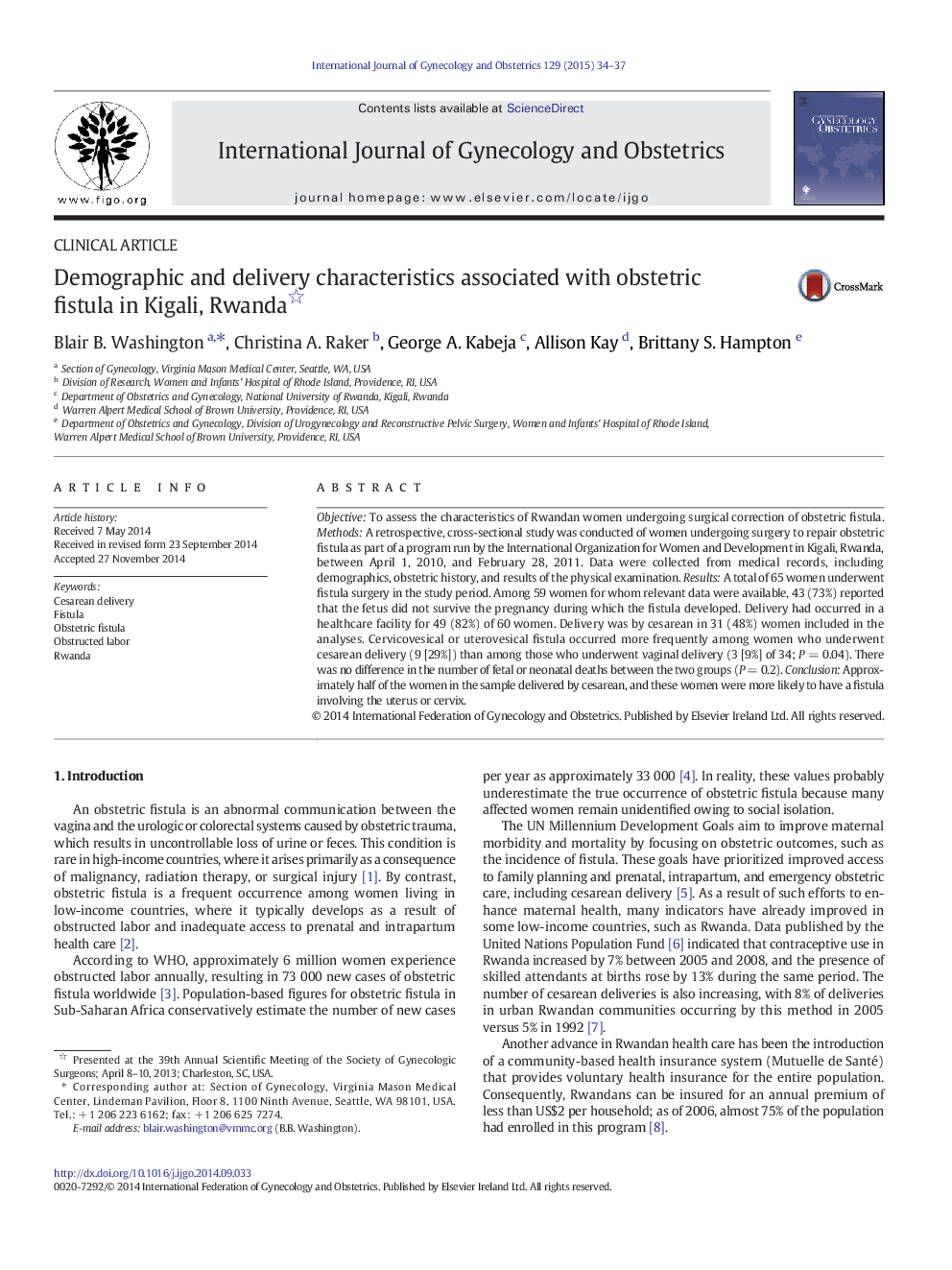| Article ID | Journal | Published Year | Pages | File Type |
|---|---|---|---|---|
| 3951771 | International Journal of Gynecology & Obstetrics | 2015 | 4 Pages |
ObjectiveTo assess the characteristics of Rwandan women undergoing surgical correction of obstetric fistula.MethodsA retrospective, cross-sectional study was conducted of women undergoing surgery to repair obstetric fistula as part of a program run by the International Organization for Women and Development in Kigali, Rwanda, between April 1, 2010, and February 28, 2011. Data were collected from medical records, including demographics, obstetric history, and results of the physical examination.ResultsA total of 65 women underwent fistula surgery in the study period. Among 59 women for whom relevant data were available, 43 (73%) reported that the fetus did not survive the pregnancy during which the fistula developed. Delivery had occurred in a healthcare facility for 49 (82%) of 60 women. Delivery was by cesarean in 31 (48%) women included in the analyses. Cervicovesical or uterovesical fistula occurred more frequently among women who underwent cesarean delivery (9 [29%]) than among those who underwent vaginal delivery (3 [9%] of 34; P = 0.04). There was no difference in the number of fetal or neonatal deaths between the two groups (P = 0.2).ConclusionApproximately half of the women in the sample delivered by cesarean, and these women were more likely to have a fistula involving the uterus or cervix.
